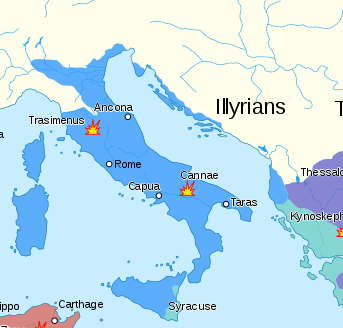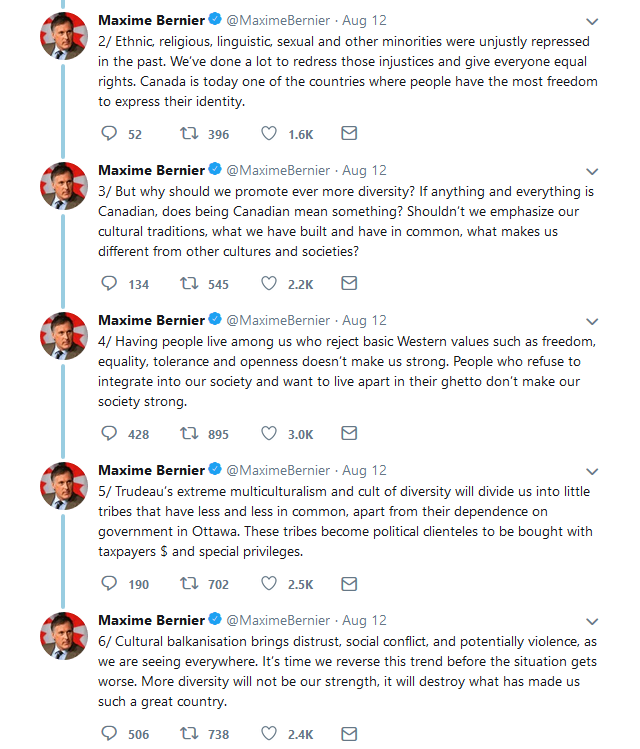seangabb
Published 4 Oct 2021The Roman Empire was the last and the greatest of the ancient empires. It is the origin from which springs the history of Western Europe and those nations that descend from the Western Roman Empire. It is the political entity within which the Christian faith was born, and the growth of the Church within the Empire, and its eventual establishment as the sole faith of the Empire, have left an indelible impression on all modern denominations. Its history, together with that of the ancient Greeks and the Jews, is our history. To understand how the Empire emerged from a great though finally dysfunctional republic, and how it was consolidated by its early rulers, is partly how we understand ourselves.
Here is a series of lectures given by Sean Gabb in late 2021, in which he discusses and tries to explain the achievement of the early Emperors. For reasons of politeness and data protection, all student contributions have been removed.
More by Sean Gabb on the Ancient World: https://www.classicstuition.co.uk/
Learn Latin or Greek or both with him: https://www.udemy.com/user/sean-gabb/
His historical novels (under the pen name “Richard Blake”): https://www.amazon.co.uk/Richard-Blake/e/B005I2B5PO
June 14, 2022
The Early Roman Emperors – Part 2: An Empire of Peoples
March 3, 2022
QotD: Diversity was Rome’s strength … as is true of almost every empire in history
The actual Roman Empire was fantastically diverse and more importantly, its military success hinged on its diversity at every stage of its existence. In many games and cultural products, that diversity is obscured because we lose sight of ethnic, religious, linguistic and cultural divisions which were very important at the time, but no longer matter to us very much. Let’s take a snapshot of Roman territory in 218 B.C. to give a sense of this.
Quite a few people look at a map like that, classify most of Rome’s territories as “Italian” and assume there is a large, homogeneous ethnic core there (except, I suspect, anyone who has actually been to Italy and is aware that Italy is hardly homogeneous, even today!). But Roman Italy in 218 B.C. was nothing like that.
Peninsular Italy (which doesn’t include the Po River Valley) contained a bewildering array of cultures and peoples: at least three distinct religious systems (Roman, Etruscan, Greek), half a dozen languages (some completely unrelated to each other) and many clearly distinct cultural and ethnic groups divided into communities with strong local identities and fierce local rivalries (if you want more on this, check out Salmon, The Making of Roman Italy (1982), Fronda, Between Rome and Carthage (2010), and Keaveney, Rome and the Unification of Italy (2005)).
The Roman army was by no means entirely Roman – it was split between Roman citizens and what the Romans called the socii (lit: “allies”) – a polite term for the communities they had subjugated in Italy (a periphery!). Rome demanded military service – this was the resource they would extract – from these communities; the socii pretty much always made up more than half of the army. Diversity was literally the Roman strength, in terms of total military force. Without it, Rome would have remained just one city-state in Italy, and not a particularly important one besides.
(As an aside: while citizenship is extended to nearly all of Italy in the 80s B.C., by then Rome is making extensive use of non-Italian troops in its armies. by the early empire, half of the army – the auxilia – were non-Roman citizens recruited from the provinces. Roman armies were essentially never majority “Roman” in any period, save possibly for the third century. And before anyone asks what about even earlier than my snapshot – it is quite clear – both archaeologically and in the Romans’ own foundation myths – that Rome was a fusion-society, culturally diverse from the city’s foundation. Indeed, sitting at the meeting point of Latin and Etruscan cultural zones as well as upland and coastal geographic zones was one of the great advantages Rome enjoyed in its early history, as near as we can tell.)
Outside of Italy, narrowly construed, the diversity only increases. Sicily’s population included Greeks, Punic (read: Carthaginian) settlers, and the truly native non-Greeks. Sardinia and Corsica had their own local culture as well. Cisalpine Gaul – the Po River Valley – was, as the name implies, mostly Gallic! As the Romans expended into Spain during the Second Punic War, they would add Iberians, Celt-Iberians, and yet more Punic settlers to their empire. And even those descriptions mask tremendous diversity – Iberians and Celt-Iberians were about as diverse among themselves as the Italians were; a quick read of Strabo reveals a wonderful array of sub-groups in all of these regions, with their own customs, languages, and so on.
Even if the Romans didn’t raise military force directly from any one of these groups, they do need to raise revenue from them – remember, the entire point of having the empire is to raise revenue from it, to make other people do the farming and mining and other labor necessary to support your society from the proceeds of their tribute. To keep that revenue flowing – revenue that, as the Roman army professionalized in the late second century B.C., increasingly paid for Roman military activity which held the empire together – you need to be good at managing those groups. Empires that are bad at handling a wide array of different cultures/religions/languages do not long remain empires.
Bret Devereaux, “Collections: Why Are There No Empires in Age of Empires?”, A Collection of Unmitigated Pedantry, 2019-11-22.
November 22, 2021
QotD: Canadian values
During recent decades, our politicians have told us a sweet bedtime story about Canada being an exceptionally compassionate country, a world leader in multiculturalism and wonderfully generous to the poor countries. All of this expresses something called “Canadian values”. All lies.
Robert Fulford, quoted in “Canada takes a new look at ‘fable’ of its image”, New York Times, 2005-05-25. (Link updated thanks to MILNEWS.ca in the comments.)
May 8, 2021
QotD: That time the global elites were against diversity
There was simply no debate back then [in the aftermath of the Great War] that a mass influx of European refugees to Africa would have been a conquest, not a “humanitarian crisis” that Africans, with their ample space and nutrient-rich soil, had some kind of responsibility to sit back and accept. And to be clear, many of the European refugees who would have trekked across Sörgel’s newly reclaimed land were genuinely in need. They were impoverished, homeless, destitute. And a lot of them were fleeing political violence. Those folks were as poor, wretched, and persecuted as any Honduran is today. But in fully rejecting Atlantropa as a goal to be pursued, the international community took the position that “it sucks that you’re impoverished and mistreated in your home country, but it ain’t Africa’s problem. Stay where you are.”
See, in those days, the elites believed in keeping people in their own damn land. Hard as that might be to fathom now, that used to be a mantra of the progressive internationalists. There was a die-hard belief that the key to world peace was the separation of people, the segregation of populations by race, religion, and ethnicity. That was the entire point of the Greek/Turkish population exchange of 1923, overseen by the League in the name of keeping Greek Christians and Turkish Muslims separated for the sake of peace. As UNC Chapel Hill history professor Sarah Shields wrote in her 2016 essay in the Journal of the History of International Law, the prevailing belief at that time was that “Muslims and non-Muslims could not live together peacefully, and modernity required rejecting a diverse past in favor of a nation-state along European (unmixed) lines.”
Separation was the future, diversity was the past. Damn near 1.6 million Greeks and Turks were sent from the land of their birth to the land where they could live with those of a similar faith. Many of the other population transfers and redrawn boundaries that followed World War I were based on that same concept of giving people their “own” homeland based on characteristics like religion or ethnicity. It was simply taken as fact back then that nations function better with some level of homogeneity. That was canon back then. By the time the U.N. came around, that notion was still very much a guiding principle, as the internationalists realized that a vision of a multireligious, multiethnic Palestine was unrealistic and unattainable. And the Jews and the Arabs realized that too, which is why they started slaughtering each other, because they couldn’t bear to live in a partitioned state. Being separate but equal was not enough. They wanted to be separate and separated.
David Cole, “When Refugees Were Conquerors”, Taki’s Magazine, 2018-10-29.
December 13, 2020
Islamism and the French Republic
Niccolo Soldo talks to Pascal-Emmanuel Gobry about the rise of Islamism in France and the dangers it poses:

Brigitte Macron and Emmanuel Macron, 11 November, 2018.
Photo from the office of the President of Ukraine via Wikimedia Commons, CC-BY-4.0.
Islamism presents an existential threat to the French Republic. Statements are being made, positions are being taken, and the smell of action is in the air to counter this threat. Will we see a follow through from Macron?
Your guess is as good as mine. Macron is hard to predict. Although there are many reasons to be pessimistic, from French elites’ general lack of follow-through to Macron’s own (I believe, sincere and deeply-held) commitment to so-called “liberal values”, I will note that it hasn’t been all talk. BarakaCity (the biggest Muslim NGO in France) whose leaders happen to think ISIS is misunderstood, was shut down by executive decree. CCIF, a prominent “anti-islamophobia” organization, dissolved itself after the government announced its intent to shut it down. So an important Rubicon has been crossed, at least in principle: the French government has rhetorically and legally committed itself to combating not just those who engage in Islamist violence, but those who engage in Islamist advocacy and activism.
Can France’s secularism hold on in light of this challenge? Islamism is rather dynamic, and secularism lacks the ingredients for fanaticism that only the irrational are able to muster. In many countries it seems that only the elites are strongly-wedded to secularism.
I’ll let you in on a little secret we don’t share with foreigners: nobody in France believes in “laïcité“, it’s all a code to say we don’t like Islam. We have a freaking concordat, for crying out loud!
The entire notion that there is this specific French culture of “laïcité” that goes beyond institutional separation of church and state was a retcon invented in the 1980s when the Muslim population became too big to ignore. Nobody — nobody — is fooled that banning the hijab in public schools as well as “large ostentatious crosses” is a neutral secularist measure.
Today some people are claiming that wearing religious garb in the National Assembly is a breach of laïcité, but after the War the Canon Kir sat as a member of Parliament in his cassock for twenty years and nobody had any problem with it. (My favorite Kir story: during a late-night parliamentary session, a Communist deputy asked him “How come you believe in God, even though you’ve never seen him?” “What about my asshole? You’ve never seen it, yet you know it exists!”)
The fig leaf of laïcité was useful, and perhaps still is, as politically correct cover for defending French identity, but over time it will have to be discarded. There are signs that it’s beginning.
The bottom line is that France has always been assimilationist. The idea is that assimilation was invented by the Republic, but it’s not true. When Louis XIV invaded a province, he would create schools with scholarships for poor, talented youth from those places to “turn them into Frenchmen.” The self-conscious project of the French Kings was to restore the Roman Empire, and this bequeathed to us the Roman concept of citizenship: laws, language, and culture. This is what is behind “laïcité.” This assimilationism therefore has deep roots, and it is perfectly legitimate that we demand of immigrants that they assimilate into our culture, which is inescapably Judeo-Christian.
H/T to Colby Cosh for the link.
November 20, 2020
QotD: Tolerance
Look, I don’t like the parading of emotions by politicians anyway: it’s not to my taste. But for a Liberal to speak ill of tolerance is to square-dance in a minefield. “Tolerance” is shorthand for the existence of a society in which persons cohabit, trade and debate without killing one another over their differences — even those differences which are serious, fundamental and intractable. Tolerance truly is the signature accomplishment of our country, and of countries like ours: it is the crucial difference between nice places to live and the not-so-nice. To dismiss it is to abandon the old liberals’ confidence that familiarity between different groups and sects may in fact lead to love and acceptance — that it is the foundation for the organic growth of a neighbourliness that cannot be ordered up like a meal or created by fiat.
Tolerance represents a mutual compact to which the state itself is a party. And its minimalism is an important feature. Tolerance does not ask you to approve of gay people, or to like atheists, or to appreciate a jaunty Sikh turban, or to trust a redhead. It insists only that you treat them as humans and fellow citizens — equal to yourself in legal endowments and social entitlements, and most particularly in the right to be left alone.
Tolerance means you do not persecute; you do not abuse; you do not commit or threaten violence. It is a restriction on behaviour, above all, or, more broadly, on conduct: it is not a test of one’s disposition, private opinions or feelings.
Colby Cosh, “‘Can we stop talking about tolerance?’ Lord, I hope not”, National Post, 2018-08-23.
October 20, 2020
The watchful algorithms of the Nanny State’s AI tools
David Warren considers the evolution of the Nanny State’s arsenal of technological surveillance (supplemented by the Karenstapo):
While it is not in my interest, currently, for gentle reader to get off the Internet, the idea must have occurred to him. In times like these, why put yourself under watch from Big Brother (or, Big Sibling, as he might prefer)? Why surround yourself with his electronic eyes, the way I am presently surrounded by jackhammers?
Granted, Nanny State was devising ways to track its citizens, and to exercise “crowd control,” long before the Internet was invented. But we had the advantage with them, for they were incompetent, often laughably inept. However, Internet-plus-meejah-plus-activists-plus-Guvmint makes a more capable adversary.
I am not recommending a systematic withdrawal from the world. That is for people with a religious calling, or some grave eccentricity. Rather I am thinking of self-defence, in the spirit of buying a gun. Of course, I am writing from Canada, one of the countries where owning a gun is more-or-less illegal; as is any other form of self-defence. (“When seconds count, the police will be here in minutes.”) Though I have noticed that, upcountry, the “No Hunting” signs tend to be used for target practice.
The “other side,” as I see it, which always worked on numbers, now has algorithms. “Artificial Intelligence” can home right in. The Nanny State never took the individual seriously, except when he was offering a threat. Now it is threatened by anything human. It is, as it were, utilitarian in outlook — “the greatest good for the greatest number” — along with other fatuous concepts, unamenable to reason. By its nature, it is positivist, nominalist, relativist, and “idealistic” in a very abstract way.
Whereas we, so far as we are human, take ourselves quite personally. In a clinch, we often prefer our own survival, and the survival of family and friends, to the requirements of a bureaucratic “policy.” That this is “selfish” should be immediately affirmed.
Because the masses are now deprived of a Christian education, they misconstrue the “selfishness” of Christian teaching, which tells us that we ought selfishly to become saints. Our intention should be to get ourselves to Heaven, along with any we know who can be taken with us. But charity is not “selfish,” in ways they understand. Under modern tenets of “multiculturalism,” even fidelity to the old Christian view is decried as a form of selfishness, calling out for persecution. For this is because it is “cultural,” not “multi” — for all the many languages it speaks.
Our enemy wants us to eschew uniqueness, and become instead “diverse” — by which it means homogenized and narrowly interchangeable. Increasingly, this adversary has the means to enforce its arbitrary will.
July 6, 2019
History Summarized: Hong Kong
Overly Sarcastic Productions
Published on 5 Jul 2019Sometimes small corners of the map can have outsized effects on the surrounding world. Hong Kong is undoubtedly one of History’s greatest examples of big things coming from small beginnings. If you’re curious about Hong Kong’s current political situation, there’s no better place to start than at the beginning.
LEARN MORE about Hong Kong’s current events:
China is Erasing its border with HK: https://www.youtube.com/watch?v=MQyxG…
HK’s huge protests, explained: https://www.youtube.com/watch?v=6_Rdn…Further Historical Reading:
A Modern History of China — Steve Tsang https://www.amazon.com/Modern-History…PATREON: https://www.Patreon.com/OSP
July 3, 2019
A sneak peak at the new “History of Diversity” course outline at Woke State University
At Rotten Chestnuts, Philmon gives us a taste of the new mandatory American history program to be introduced this Fall at WSU:
… people from other parts of the world had heard about this wonderful place where they, too, could come and be diverse, and they started coming … from China, from Japan, from Mexico, and the Middle East, with only the distant dream of Diversity™ on their minds.
We also created great UniDiversities to increase our knowledge and awareness of Diversity™ (especially after the Democrats freed the slaves!)
But in 1972, the Republican (aka, “Nazi”) Party was founded by Richard Nixon specifically to ban Diversity™ and put to everybody who wasn’t white into concentration camps. Fortunately, the Democrats came roaring back with Jimmy Carter in 1976, who created the Department of Education that has vastly improved Education in the United States by teaching us all to be more Diverse™. Since then our education has become the best in the world! And! he graciously let 52 Americans be the guests of some nice Iranian students for more than a year just so they could become more diverse.
But then Ronald Reagan inexplicably won the election of 1980 (due to a clerical error at Trump, Inc*) and he immediately started a nuclear war with Russia. This was because he was not diverse and they were … well never mind, but it greatly reduced the Diversity™ in the world. Plus, Toxic Masculinity. Which is not Diverse™. Everyone should be more like women. That would be Diverse™.
After 12 years of cruel, oppressive Republican rule during which Reagan coerced some Germans to vandalize an historic, diverse wall, the great Bill Clinton was elected the First Black President™, which Americans thought finally ushered in Diversity™ once and for all.
But alas, it wasn’t to be, because G.W. Bush (aka “Hitler”) stole the election 8 years later by cleverly winning a majority of the votes in the Electoral College (like that was even legal!) and had the CIA fly planes into the World Trade Center and Pentagon so that he could attack Iraq. This was clearly because they were brown and he hated Diversity™, and also for oil. The United Nations had asked Saddam Hussein nicely 17 times to stop killing his own people, but it turned out he was doing it to reduce Iraq’s carbon footprint. Well this was the last straw (before California bravely banned them). Bush viciously attacked and removed Hussein from office because racism. And also blood for oil. Halliburton!!!! By the time he left office he personally had 100% control of all Iraqi oil, which he quickly lost to Dick Cheney (aka “Darth Vader”) in a drunken bet at a bar the night before the next election (Cheney then poured the oil all over Grand Teton National Park just so it could be drilled up again — also because he hates nature and especially fly-fishing).
After that, America came to its senses and elected Barack Obama, Savior of the Universe™, to be the Second First Black President™. Under his wise and kind rule, Americans began to get along Diversely like never before. Some people in Ferguson, Missouri even burned and looted a bunch of minority owned business just so they could get insurance money which they were owed by their former oppressors, who were now forever banished. It was almost the Paradise that Michael Moore proved Iraq was before G.W. Bush (aka “Hitler”) went in and started terrorism as we know it today (and stole all their oil).
August 15, 2018
Maxime Bernier on sensible limits to “unlimited” diversity
Maxime Bernier responds to Prime Minister Trudeau’s apparently unlimited desire for more and more diversity in Canada:
1/ Trudeau keeps pushing his “diversity is our strength” slogan. Yes, Canada is a huge and diverse country. This diversity is part of us and should be celebrated. But where do we draw the line?
Diversity is what makes Canada strong: Trudeau https://t.co/dZmCffRBFY
— Maxime Bernier (@MaximeBernier) August 13, 2018
The following tweets as a screencap, to avoid slowing down the whole page loading (as often happens with multiple tweet embeds):
May 20, 2018
“I grew up in one of the most progressive societies in the history of humanity”
At Quillette, Konstantin Kisin discusses the differences between the utopian ideal and reality:
I grew up in one of the most progressive societies in the history of humanity. The gap between the rich and poor was tiny compared to the current gulf between the ‘haves’ and the ‘have-nots’ we find across much of the West. Access to education was universal and students were paid to study and offered free accommodation. Healthcare was available to all and free at the point of use. Racial tensions were non-existent, with hundreds of different ethnic groups living side by side in harmony under the mantra of ‘Friendship of the Peoples.’ Women’s equality was at the very heart of Government policy. According to the prevailing ideology “all forms of inequality were to be erased through the abolition of class structures and the shaping of an egalitarian society based on the fair distribution of resources among the people.”
You are probably wondering whether the idyllic nation from which I hail is Sweden or Iceland. It was the Soviet Union. In modern Britain the top 10 percent earn 24 times as much as the bottom 10 percent but in the Soviet Union the wealthy and powerful barely made 4 times as much as those at the bottom. The illiteracy rate in late Soviet times was just 0.3 percent compared to 14 percent of the US adult population who cannot read today. University students were paid an allowance to study and those from working class backgrounds were often given preferential treatment to facilitate better access to higher education. Free accommodation was available for students studying outside their home town.
The Soviet Union was a huge country populated by hundreds of ethnic and religious groups that had been slaughtering each other for centuries. In this shining example of a successful multicultural state, Armenians, Azerbaijanis, Ukrainians, Russians, Tatars, Moldovans, Belarussians, Uzbeks, Chechens, Georgians, Kazakhs, Tajiks, Turkmens, Lithuanians, Estonians, Latvians, and dozens of others all lived side-by-side as friends and neighbours.
The USSR actively promoted women’s equality in order to get more women into the workforce, with some of Vladimir Lenin’s first steps after the 1917 Revolution including simplifying divorce and legalising abortion with the stated goal of “freeing women from the bondage of children and family.” Maternity leave was generous and the state provided ample childcare centres, one of which I myself attended.
Unfortunately, despite these facts and the lofty ideals from which they were derived, the reality of life in the Soviet Union was rather different.
February 23, 2018
QotD: Cosmopolitans, as viewed by non-Cosmopolitans
… it’s a problem that our tribe of self-styled cosmopolitans doesn’t see itself clearly as a tribe: because that means our leaders can’t see themselves the way the Brexiteers and Trumpistas and Marine Le Pen voters see them.
They can’t see that what feels diverse on the inside can still seem like an aristocracy to the excluded, who look at cities like London and see, as Peter Mandler wrote for Dissent after the Brexit vote, “a nearly hereditary professional caste of lawyers, journalists, publicists, and intellectuals, an increasingly hereditary caste of politicians, tight coteries of cultural movers-and-shakers richly sponsored by multinational corporations.”
They can’t see that paeans to multicultural openness can sound like self-serving cant coming from open-borders Londoners who love Afghan restaurants but would never live near an immigrant housing project, or American liberals who hail the end of whiteness while doing everything possible to keep their kids out of majority-minority schools.
They can’t see that their vision of history’s arc bending inexorably away from tribe and creed and nation-state looks to outsiders like something familiar from eras past: A powerful caste’s self-serving explanation for why it alone deserves to rule the world.
Ross Douthat, “The Myth of Cosmopolitanism”, New York Times, 2016-07-03.
September 6, 2017
QotD: Suicidalism
The most important weapons of al-Qaeda and the rest of the Islamist terror network are the suicide bomber and the suicide thinker. The suicide bomber is typically a Muslim fanatic whose mission it is to spread terror; the suicide thinker is typically a Western academic or journalist or politician whose mission it is to destroy the West’s will to resist not just terrorism but any ideological challenge at all.
But al-Qaeda didn’t create the ugly streak of nihilism and self-loathing that afflicts too many Western intellectuals. Nor, I believe, is it a natural development. It was brought to us by Department V of the KGB, which was charged during the Cold War with conducting memetic warfare that would destroy the will of the West’s intelligentsia to resist a Communist takeover. This they did with such magnificent effect that the infection outlasted the Soviet Union itself and remains a pervasive disease of contemporary Western intellectual life.
Consider the following propositions:
- There is no truth, only competing agendas.
- All Western (and especially American) claims to moral superiority over Communism/Fascism/Islam are vitiated by the West’s history of racism and colonialism.
- There are no objective standards by which we may judge one culture to be better than another. Anyone who claims that there are such standards is an evil oppressor.
- The prosperity of the West is built on ruthless exploitation of the Third World; therefore Westerners actually deserve to be impoverished and miserable.
- Crime is the fault of society, not the individual criminal.
- Poor criminals are entitled to what they take. Submitting to criminal predation is more virtuous than resisting it.
- The poor are victims. Criminals are victims. And only victims are virtuous. Therefore only the poor and criminals are virtuous. (Rich people can borrow some virtue by identifying with poor people and criminals.)
- For a virtuous person, violence and war are never justified. It is always better to be a victim than to fight, or even to defend oneself.
- But “oppressed” people are allowed to use violence anyway; they are merely reflecting the evil of their oppressors.
- When confronted with terror, the only moral course for a Westerner is to apologize for past sins, understand the terrorist’s point of view, and make concessions.
These ideas travel under many labels: postmodernism, nihilism, multiculturalism, Third-World-ism, pacifism, “political correctness” to name just a few. It is time to recognize them for what they are, and call them by their right name: suicidalism.
Eric S. Raymond, “Suicidalism”, Armed and Dangerous, 2005-09-13.
May 7, 2017
QotD: The privilege of colourblindness
In Slate magazine, SF author Ursula LeGuin complains that the producers of the new Earthsea miniseries have butchered her work. One form of butchery that she zeroes in on is by casting characters who she intended to be red, brown, or black as white people.
I have mixed feelings. LeGuin has every right to be POed at how her intentions were ignored, but on the other hand my opinion of her has not been improved by learning that she intended the books as yet another wearisomely PC exercise in multiculturalism/multiracialism.
I liked those books when I read them as a teenager. I didn’t notice any character’s skin color. I would really prefer not to have had my experience of those characters retrospectively messed with by LeGuin’s insistence that the race thing is important.
Note: I am not claiming that all casting should be colorblind. I remember once watching an otherwise excellent Kenneth Branagh production of Much Ado About Nothing that was somewhat marred for me by Branagh’s insistence on casting an American black man as a Renaissance Italian lord. This was wrong in exactly the same way that casting a blue-eyed blond as Chaka Zulu or Genghis Khan would be — it’s so anti-historical that it interferes with the suspension of disbelief. Fantasy like LeGuin’s, however, doesn’t have this kind of constraint. Ged and Tenar don’t become either more or less plausible if their skin color changes.
But what really annoyed me was LeGuin’s claim that only whites have the “privilege” of being colorblind. This is wrong and tendentious in several different ways. Colorblindness is not a privilege of anyone, it’s a duty of everyone — to judge people not by the color of their skin but the content of their character, and to make race a non-issue by whatever act of will it takes. (It doesn’t take any effort at all for me.)
Eric S. Raymond, “The Racist of Earthsea”, Armed and Dangerous, 2004-12-16.
February 26, 2017
QotD: Tibetan cuisine
… even in Parkdale we have good restaurants. There are now seven Tibetan chop shops (yak stops?) along Queen Street. I think this qualifies us to be called “Little Tibet,” and get special street signs from the the municipal multicultural patronizing bureaucracy. Though when I accompanied an excessively white friend into one such establishment, he was filled with anxiety. “I sure hope the food isn’t authentic,” he commented.
It was, earlier today, starting with the salted butter tea. Or rather, it wasn’t. Everything tastes different, this close to sea level.
The same remark can be made for chillies, as can be made for wine. Except, chillies often grow well in the mountains. But this depends on the mountain face, in relation to the sun’s course; on the soils, and temperatures; on the rains in their seasons; on luck, and the art of the chilli farmer. Gentle reader will guess I am about to pump Tibetan Tiger Chillies.
Now, Tibet is no country to grow chillies, overall. Some katabasis is usually required. Go south, down the mountains, perhaps to Bengal; then east, to the hills behind Chittagong; or into the lower hills of Assam; and there, I solemnly believe, you will find the finest chillies in the world. The Naga Morich, grown there, have been attempted elsewhere, always with dispiriting results. The conditions can be reproduced artificially, and hybridizations can be tried to square the circle, as it were. Some gentleman in England topped the Scoville table, a few years ago, by triangulating from the Naga Morich, the Bhut Jolokia (or, “ghost pepper,” closely related), and the Trinidad Moruga (or, “butch scorpion,” with linguistic variants). But the hybrid was unstable and he lost the competition the next year.
I love very hot chillies, and those above 1,000,000 Scoville units are much appreciated. (The hottest Habaneros get only half way there.) But I also love chillies, in themselves, and this includes quite mild ones. You see, as chilli-haters refuse to be taught, there is more to them than capsaicin. Even the heat is produced by compounds: the scientists, always counting, don’t know where to start. The customer who wants only pain can hit 16,000,000 with the synthetic chemical in its wax form. … Go ahead. … I’ll watch.
A Canadian (white) may say, “How can you taste your food with all those chillies?” There is no polite answer to this. It’s a typically Canadian passive-aggressive stance: to ask the unanswerable question. You just have to shoot them.
David Warren, “Elevated Discourse”, Essays in Idleness, 2015-06-11.









